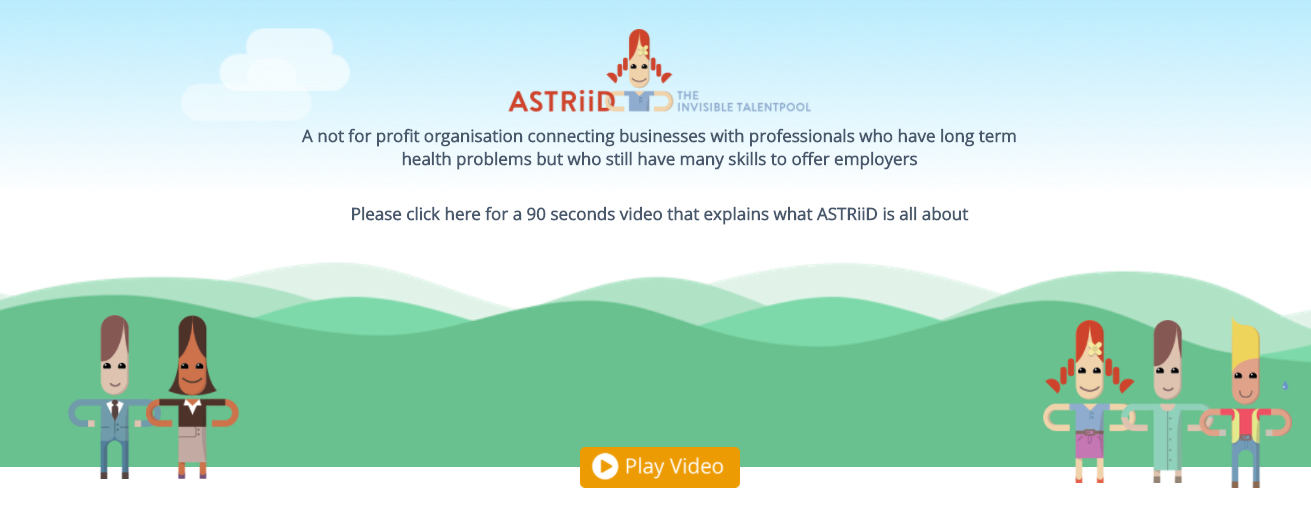A serious illness diagnosis is a life-changing event, and one that affects different people in different ways.
For people who have always found meaning in their work, a chronic, long-term illness can see that sense of purpose suddenly taken away – with devastating consequences for their mental wellbeing, and even for their life expectancy.
That was the case for David Shutts OBE, who was diagnosed with stage 4 kidney cancer at the age of 50. A former Royal Navy commander turned regional director of the Confederation of British Industry, David is one of life’s doers; a highly motivated, dynamic individual who is happiest when pouring his energy into his work.
Watch David's story:
A life-changing diagnosis
David’s unexpected diagnosis turned his life upside down. Unable to continue in his CBI role, he was dismayed to realise that the wealth of skill and experience he had built up in his highly successful career risked going to waste.
“Suddenly I experienced feelings of solitude, a lack of worth, dwindling self-belief and a lack of self-confidence,” he says. “It seemed to me that I had gone from ‘valuable’ to ‘valueless’ in the space of one diagnosis. And that turned to a sort of anger, because I’ve got the skills, I’ve got a bucket of experience that I can use.”
The “invisible talent pool"
Crucially, David knew he wasn’t alone. In the UK, 977 people are diagnosed with cancer each day; for many, the illness has progressed too far to reverse. Returning to their former employment often isn’t possible – creating an “invisible talent pool” of people with specialist skills and knowledge but nowhere to apply them.
David found the prospect of all that wasted experience unacceptable. Not only was it detrimental to the wellbeing of the cancer patient, it also meant that skills-starved British businesses were missing out on a key source of talent. His customary drive and determination kicked in, and he decided to do something about it.
A vision – and a solution built by Salesforce volunteers
David’s vision was for a service that could match businesses in need of specific capabilities to appropriately-skilled professionals with long-term illnesses.
By chance, one of the people he talked to about it was his lifelong friend and colleague from Navy days, Simon Short, EVP of Customer Success and Growth for Salesforce EMEA.
“David had this great idea, and I started to realise that Salesforce technology can actually make this happen,” says Simon.
Under its 1-1-1 model of integrated philanthropy, Salesforce was happy to make its cloud software platform available to David for free, to enable him to build the service.
And that’s not all: the 1-1-1 model sees Salesforce give away 1% of its product each year, but also 1% of its employees’ time and 1% of its profits. That meant there was a ready-made team of volunteers at Salesforce UK to help David build the app and realise his vision.
The project embodies Salesforce’s concept of ‘Ohana’, or ‘family’. “People were so willing to give their time for this,” says Vanessa O’Brien, Program Manager for Customer Success and Growth at Salesforce EMEA. “It’s very close to their hearts, and I’ve seen them produce some incredible work.”
ASTRiiD: matching employers with skilled individuals
And so ASTRiiD was born: a charity based on a website where people with long-term illnesses can easily register their skills (David calls them their “superpowers”) and their availability to work, and employers in search of specific skills can register to find someone who matches their needs.
Before long, ASTRiiD had made its first match: a large technology company used it to source a motivational speaker.
And that’s just the start. With the UK skills gap costing UK businesses £2.2bn in 2017, according to the Open University, and 69% of companies expecting hiring to remain tough in 2018, the pool of skilled people with long-term illnesses – but the drive and determination to keep working – could be an important part of the solution.
Not everyone with a serious illness wants to continue working. But for those who do, ASTRiiD is there to help. “My vision for ASTRiiD is that if one person helps one business improve – and if by doing so, that person fights their disease such that they outlive some statistic that they get given as a prognosis, then it’s worth it,” says David. “Imagine that on a global basis.”
Find out more
Learn more about ASTRiiD and the 1-1-1 integrated philanthropy model for giving back to society. And please do share this with your networks and perhaps you could help connect someone in that "invisible talent pool" with a business that would really appreciate their expertise.








